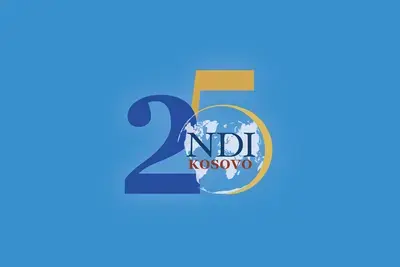
Success Story
"Truth-O-Meter" Encourages Accountability in Serbia
The idea came to Vuka Crnjanski when she heard a government official say of a group illegally charging tolls on Serbia's highways: "It's OK to steal a little. This group just went too far."
"Such a statement should have gotten the minister in serious trouble," said Crnjanski, who had worked with NDI as a political party and civil society trainer and was formerly senior figure in Serbia's Liberal Democratic Party. "However, there was virtually no reaction to the statement from any political parties, government officials, NGOs or the media."
She was longing for accountability, and she wasn't alone. Having rid themselves of the Milosevic regime nearly 10 years ago, the citizens of Serbia are standing up for the notion that government is there for the public good, not private gain. But there was still no public way to hold government officials and public servants accountable for their policies, statements and actions.
The result is a website called the Istinomer, or Truth-O-Meter, a Serbian language website that analyzes politicians' statements based on truthfulness, consistency and whether they fulfill campaign promises or policy pledges. The team behind the Truth-O-Meter, which includes Crnjanski and two investigative journalists, researches and analyzes statements they find or that are submitted by the public. They publish a rating of the statement on a five point scale, along with the facts supporting their judgment. Since starting the site, the Truth-O-Meter team has evaluated statements dealing with everything from government restructuring to promises of EU integration. Crnjanski and her team see this is as the first step in creating a political culture in which people demand that government serve the public interest.
Crnjanski faced two main challenges in launching the website: funding and credibility. She didn't have any funding and wanted to be sure the end product wasn't perceived as biased for or against any parties or individuals. The first problem was solved when a Belgrade company offered to create the site for free. As for the credibility, Crnjanski assembled an advisory board comprised of professionals perceived as nonpartisan and trustworthy, including the Commissioner for Information of Public Importance and Personal Data Information, the editor and chief of a private media agency and the director of the national archives for print media. Crnjanski partnered with NDI and the International Republican Institute for strategic advice.
To celebrate the site's launch, the Istinomer team held an outdoor event in Belgrade, with large reproductions of the Truth-O-Meters as they appear on the site. Passersby placed cutouts of politicians' faces where they thought they belonged on the truthfulness scale. The event attracted several hundred people and national media and had people around the country visiting the site. That day, the site received more than 3,000 visitors.
Since its launch in December, the Truth-O-Meter has been visited more than 100,000 times and continues to gain in popularity. While the website maintains a national focus, the group hopes to launch local versions to hold politicians accountable at the state and local levels. Groups in neighboring Bosnia and Kosovo have approached Crnjanski for advice on creating Truth-O-Meters in their countries.
Pictured above: People place photos of politicians where they think they belong on the Truth-O-Meter at the site's launch event in Belgrade.
Published April 19, 2010



